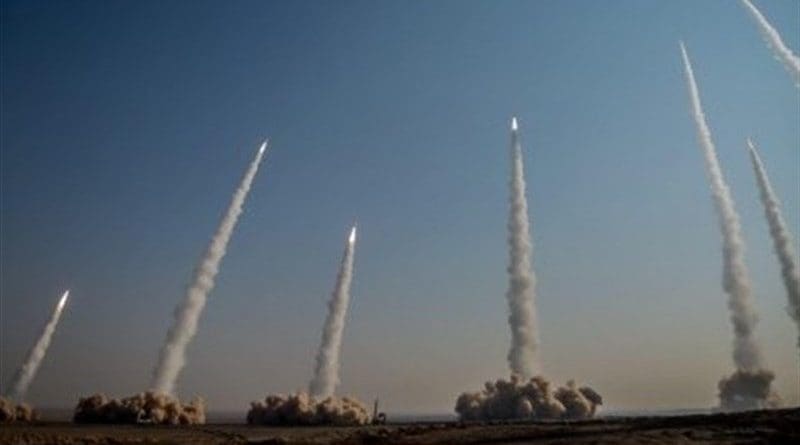The US Needs A Firm Policy On Iran – OpEd
By Arab News
By Dr. Majid Rafizadeh*
The US ought to take a firmer Iran-Russia policy, one which will adequately address the rapidly growing partnership between the Iranian regime and Russia on multiple fronts, including military, strategic, nuclear and economic ones.
Unfortunately, the Biden administration’s policy regarding Iran-Russia ties appears to have emboldened, or facilitated the way for, Tehran and Moscow to become closer. For example, recently, the Biden administration renewed a series of sanctions waivers; these sanctions will allow the theocratic establishment of Iran and Russia to cooperate with each other concerning Tehran’s nuclear program at Iranian enrichment facilities.
Apparently, the waivers were authorized by US Secretary of State Antony Blinken “on Jan. 31, but Congress was not notified of the decision until late on Feb. 3, after the Free Beacon began making inquiries about the exemptions. Senior congressional sources said that the Biden administration is trying to sweep the sanctions waivers under the rug amid renewed concerns about Iran and Russia’s military alliance,” according to the Beacon.
It is worth noting that Tehran and Moscow previously worked together to construct several nuclear reactors in Iran and advance the regime’s nuclear technology.
The Biden administration is sending a message to the Iranian leaders and Russia that Washington is indeed in favor of reviving the new nuclear deal. Iran’s staunch ally, Russia, plays a key role in Biden’s Iran nuclear deal. The deal will reportedly allow Moscow to cash in on a $10 billion contract to expand Iran’s nuclear infrastructure.
Blinken previously made it clear to US lawmakers that the Biden administration would not stand in the way of Russia cashing in on the $10 billion contract as well as Russia-Iran nuclear cooperation. And the State Department spokesman, Ned Price, formally reiterated the Biden administration’s stance by pointing out: “We, of course, would not sanction Russian participation in nuclear projects that are part of resuming full implementation of the JCPOA.”
Furthermore, other than the nuclear issue, the Biden administration is yet to adopt a stronger policy with respect to the growing military ties between Iran and Russia. As British Defense Minister Ben Wallace pointed out to the UK Parliament regarding the Russia-Ukraine conflict: “Iran has become one of Russia’s top military backers.”
Instead of just shipping its drones, Iran is planning to set up a drone assembly line in Russia to help Moscow in its war against Ukraine. A high-level Iranian delegation recently visited Russia, which was led by Brig. Gen. Abdollah Mehrabi, head of the Islamic Revolutionary Guard Corps Aerospace Force Research and Self-Sufficiency Jihad Organization, and Ghassem Damavandian, the chief executive of Iran’s Quds Aviation Industry.
According to a recent report by the Wall Street Journal, the Iranian regime and Russia are moving ahead “with plans to build a new factory in Russia that could make at least 6,000 Iranian-designed drones for the war in Ukraine, the latest sign of deepening cooperation between the two nations, said officials from a country aligned with the US. As part of their emerging military alliance, the officials said, a high-level Iranian delegation flew to Russia in early January to visit the planned site for the factory and hammer out details to get the project up-and-running.”
Militarily speaking, Russia is also moving to provide advanced military equipment to the Iranian regime, including air defense systems, fighter jets and helicopters.
This will likely make the regime, which is the world’s leading state sponsor of terrorism, a stronger, more belligerent and expansionist state. Russians will be reportedly training Iranian pilots on how to use the Su-35 fighter jet. Even White House National Security Council spokesman John Kirby recently acknowledged that Russia was offering Iran “an unprecedented level of military and technical support that is transforming their relationship into a full-fledged defense partnership.” Regarding Russian Su-35 fighter jets, Kirby warned that these fighter planes would “significantly strengthen Iran’s air force relative to its regional neighbors.”
Hit by draconian financial sanctions, the Iranian regime is also attempting to evade sanctions, increase its revenues and create a sanction-proof economy by strengthening its relationship with Russia. According to a recent report by Bloomberg: “Russia and Iran are building a new transcontinental trade route stretching from the eastern edge of Europe to the Indian Ocean, a 3,000-km (1,860-mile) passage that is beyond the reach of any foreign intervention.
“The two countries are spending billions of dollars to speed up delivery of cargos along rivers and railways linked by the Caspian Sea. Ship-tracking data compiled by Bloomberg show dozens of Russian and Iranian vessels — including some that are subject to sanctions — already plying the route.”
In a nutshell, the Biden administration needs a firmer policy to counter the growing military and nuclear ties between the Iranian regime and Russia.
• Dr. Majid Rafizadeh is a Harvard-educated Iranian-American political scientist. Twitter: @Dr_Rafizadeh

